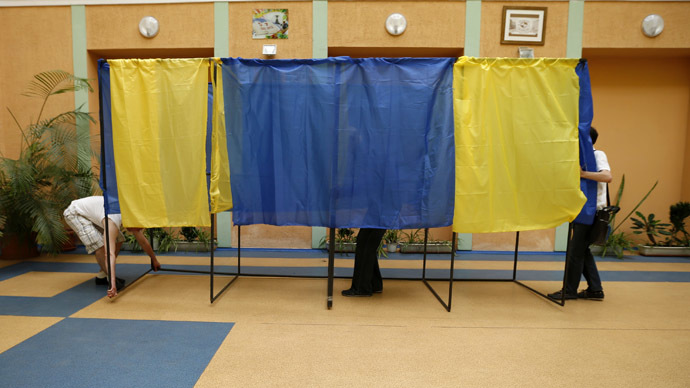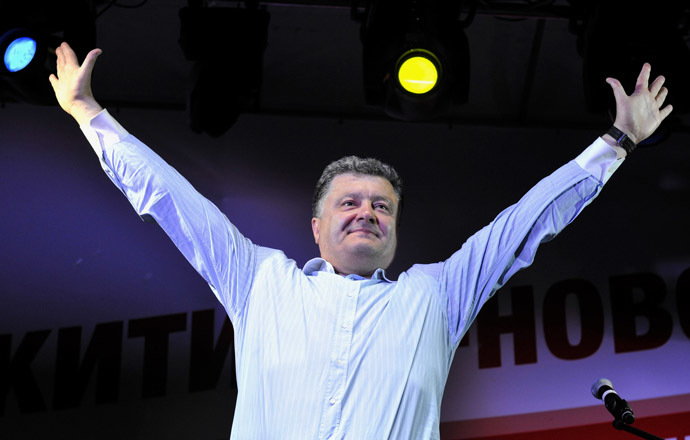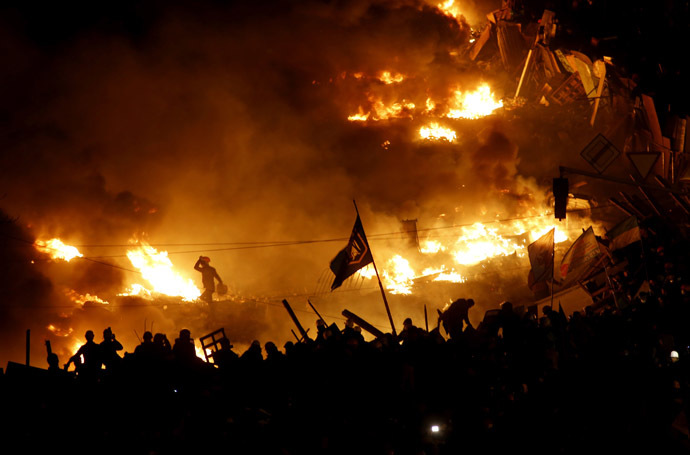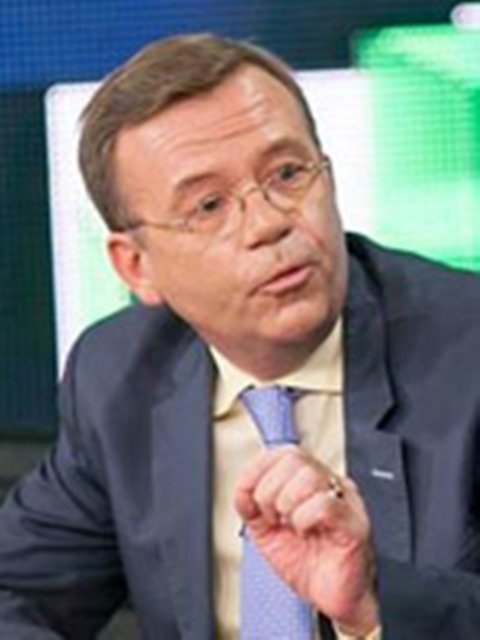Ukraine: From tragedy to farce

Washington’s ‘thinktankistan’ and the west’s media echo chamber are spinning Ukraine’s May 25 election as the crowning moment legitimizing the western-backed coup overthrowing the elected government in Kiev.
They also spin Russian President Vladimir Putin has miscalculated in Ukraine and is trying to find a face-saving solution. Both spins are simply flat out wrong.
The creators of the Ukraine crisis are desperate. Victoria Nuland
and her band of ultranationalists and neo-fascists demonstrated
they could pull-off a successful coup. This is not remarkable in
any sense. Staging coups around the globe has been part and
parcel of American statecraft for decades; particularly since the
end of the Cold War. But in the case of Ukraine almost everything
that has happened since the illegal takeover of power on the
night February 21 has been a disaster. Crimea voted to return to
Russia, regions of the east have held referenda on
self-determination, the massacre in Odessa occurred, and the
country’s economy is in a free fall. The planned presidential
election is calculated to legitimize the coup and fast track
Ukraine westward. It is not going to happen.
Petro Poroshenko, the Ukrainian oligarch known as the Chocolate
King, is the presidential candidate who is expected to save
Ukraine from the abyss and deliver his country to Washington,
Brussels, and the IMF. Judging by polling numbers, he is quite
likely to be elected by those who plan to vote (and millions in
the east and south say they won’t). Legally speaking, this
election has no legitimacy. Ukraine’s constitutional order was
destroyed on the night of the coup. Since then the country has
been governed by a rump parliament, political parties not
supporting the undemocratic government physically attacked, and
presidential candidates intimidated. Poroshenko is set to be
president, but this will hardly address Ukraine’s daunting
problems.

Poroshenko’s biggest political problems will not be the
protesters in the east and south, nor will it be Russia.
Ukraine’s next president will have to immediately deal with what
western governments and media are reluctant to talk about: the
nature of the political forces currently running Ukraine.
Poroshenko did back the protests on the Maidan, but not all
protesters on the Maidan supported Poroshenko. It is doubtful
groups like Right Sector and Svoboda will simply change or drop
their ultranationalist and racist views to please an opportunist
oligarch like Poroshenko. The most likely outcome is probably the
following: either Poroshenko attempts to appease their leaders
with the trappings of power and wealth (and dilute whatever power
he will have as president), or he will have to guard against
still another Maidan uprising backed by the likes of Right Sector
and Svoboda. Neither outcome bodes well for Ukraine.
If Poroshenko continues the violent assault on the east and south
he will demonstrate he is not president of all Ukrainians. But if
he does reach out to the east and south, the radicals of the coup
will be watching closely. Again, this is a lose-lose outcome for
Ukraine. This is probably most tragic outcome of the forced
collapse of the constitutional order – unelected radicals,
racists, and ordinary thugs have been allowed to become important
elements of the Ukrainian political landscape. Ukraine and the
rest of the world have Washington to thank for this sad state of
affairs. Let us now turn to Russia and the Kremlin’s view of
Ukraine. Putin is not backing down or looking for a way out. Far
from it. Ever since this artificial crisis began, Russia has been
watching – and it continues to watch. Putin’s attitude regarding
the May 25 presidential vote is one of indifference at best.
Russia cannot stop the vote. But if Poroshenko can, somehow and
in some way, prove himself as a leader of all the people, then
Moscow has every interest in engaging the next Ukrainian
president. But for reasons expressed above, this is hardly going
to be the case.

In the west there is a strong belief in elections. However,
elections are not always an expression of democracy. Ukraine’s
presidential election is first and foremost an exercise to
legitimize Washington’s illegal meddling in Ukraine’s political
and democratic process. It is doubtful this election will do
anything to end Ukraine’s crisis. In fact, it may make it worse.
Save this space: Ukraine’s May 25 presidential election will go
down in history as the starting date when the Maidan started
(still again) to rise up against the new authorities in Kiev. As
usual, Russia will be watching.
Peter Lavelle is host of RT's political debate program
'CrossTalk' and monthly business program
'On the
Money.' His views are his own and not necessarily those
of his employer.
The statements, views and opinions expressed in this column are solely those of the author and do not necessarily represent those of RT.
The statements, views and opinions expressed in this column are solely those of the author and do not necessarily represent those of RT.













